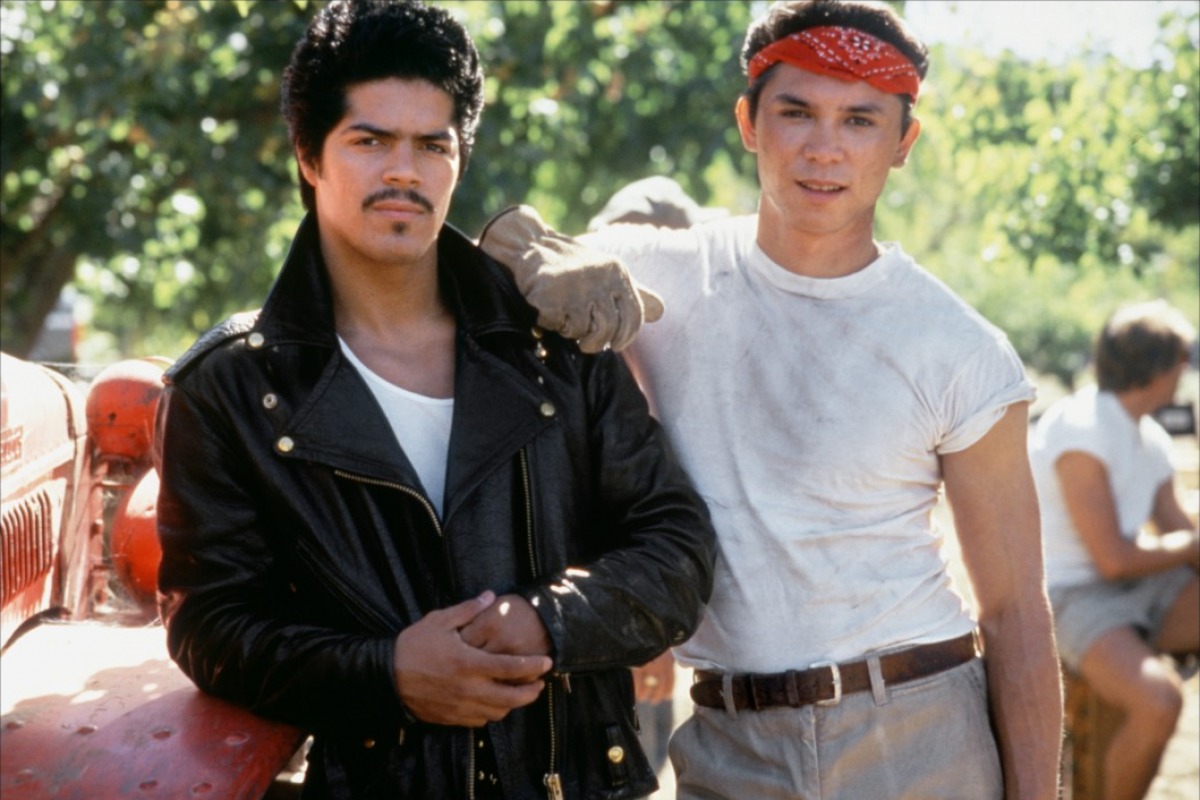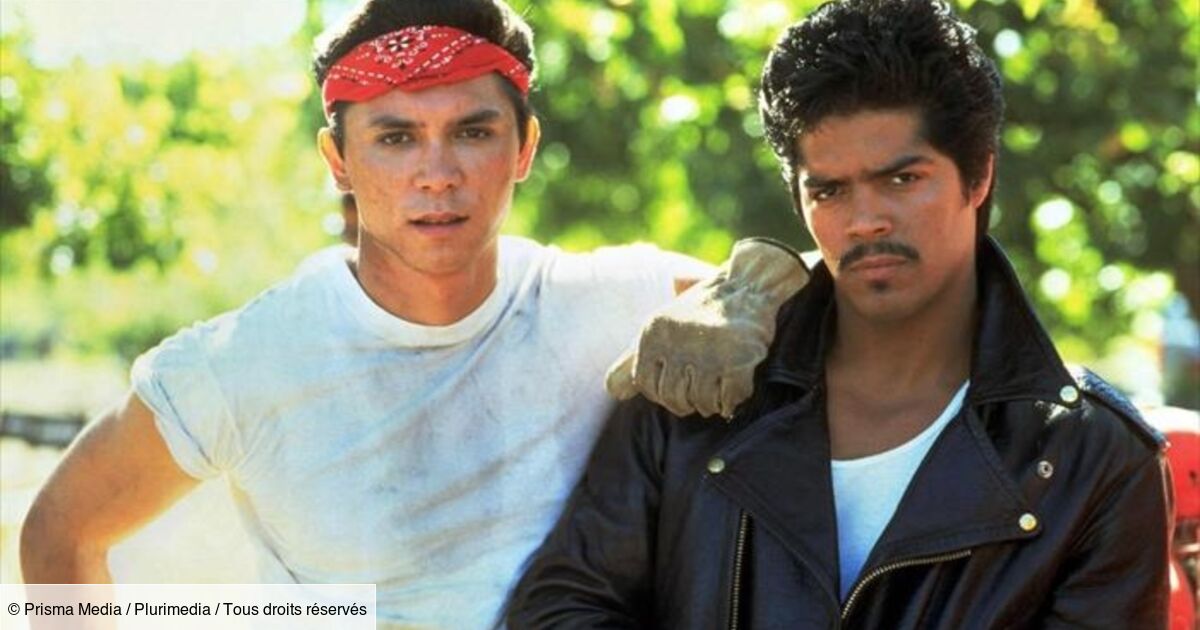"La Bamba" (1987): A Must-See Biopic Starring Lou Diamond Phillips
Can a film truly capture the incandescent spirit of a musical legend and the seismic impact of their tragically short life? "La Bamba," the 1987 biographical drama, attempts just that, offering a vibrant, if somewhat sentimental, portrayal of Ritchie Valens' meteoric rise and devastating fall.
The film, directed and written by Luis Valdez, hit theaters on July 24, 1987, courtesy of Columbia Pictures, and immediately captivated audiences. The core of "La Bamba" is, undoubtedly, the performance of Lou Diamond Phillips as the charismatic Valens. He embodies the teenage heartthrob with an undeniable sweetness and swagger, perfectly capturing the essence of the 1950s Californian youth who was on the cusp of superstardom.
The movie opens with a scene that is very effective, but it may be that it wasn't the right way to open "La Bamba." Everyone who sees this movie will know that Valens died in an airplane crash with Buddy Holly and the Big Bopper on February 3, 1959 the day the music died. That event casts a long shadow over the film. But the movie doesn't just dwell on tragedy; it celebrates life, music, and the power of family. The film explores the complex relationships within Valens' family, particularly his bond with his mother, portrayed by Rosanna DeSoto, and his rebellious brother, played by Esai Morales.
The movie's cast is one of its greatest assets. Lou Diamond Phillips shines as Ritchie Valens, delivering a performance that earned him critical acclaim and solidified his place in Hollywood. The supporting cast is equally impressive, with Esai Morales bringing depth and intensity to the role of Valens' brother, Bob. Rosanna DeSoto is outstanding as Valens' fiercely supportive mother, portraying the unconditional love and strength that shaped the young musician. The film also features Joe Pantoliano as Bob Keane, the record producer who discovered Valens, and Danielle von Zerneck as Donna Ludwig, the inspiration behind Valens' hit song "Donna."
The soundtrack is essential to the film's success, as it's filled with classic rock 'n' roll hits, including, of course, the titular "La Bamba." This song, the final studio recording by Valens, remains a timeless anthem. The film doesn't shy away from the challenges Valens faced. The film touches upon the prejudices and stereotypes that he encountered as a Mexican-American artist in a predominantly white music industry.
The biographical elements of the movie are, by definition, limited to the life of Ritchie Valens. The film is a snapshot of his career and his life, there is also the inclusion of his personal life with his family. One of the strengths of "La Bamba" is its ability to evoke the atmosphere of the era. From the vintage cars and clothing to the music, the film transports viewers back to the 1950s, the music scene of Los Angeles.
In many ways, the movie has become a cultural touchstone. It's a film that has resonated with audiences for decades, and a testament to the enduring legacy of Ritchie Valens. "La Bamba" has received many reviews, and has many casts and crew members. Tim Treakle rated the movie 5/5 stars on April 13, 2025.
The film provides a view of a time when rock 'n' roll was becoming a global phenomenon, "La Bamba" serves as a reminder of the importance of cultural identity and the power of music. It reminds the viewers of the struggles of minority artists in America.
For those interested in a deep dive into the life and career of the musician, here is some information.
| Full Name | Richard Steven Valenzuela |
| Born | May 13, 1941, in Pacoima, California, USA |
| Died | February 3, 1959, in Clear Lake, Iowa, USA (plane crash) |
| Age at Death | 17 |
| Nationality | American |
| Occupation | Singer, songwriter, guitarist |
| Genres | Rock and roll, Rockabilly, Latin rock |
| Instruments | Vocals, guitar |
| Known For | Hits like "La Bamba," "Donna," "Come On, Let's Go" |
| Associated Acts | The Silhouettes |
| Years Active | 1957-1959 |
| Influences | Little Richard, Chuck Berry, Buddy Holly |
| Legacy | Pioneering figure in Chicano rock and roll; influential guitarist and songwriter; inducted into the Rock and Roll Hall of Fame in 2001. |
| Reference Website | Rock & Roll Hall of Fame |
The success of "La Bamba" is partly attributable to the enduring power of Valens' music. His songs, particularly "La Bamba" and "Donna," are instantly recognizable and continue to be played on radio stations worldwide. His music is a reminder of a bygone era.
The film also presents a valuable look into the music industry of the time. The film shows how the record executives and producers worked with artists. It also touches upon the conflicts that Valens had with his brother Bob.
Beyond the biographical aspects, "La Bamba" explores the themes of family, love, and the pursuit of dreams. These themes give the movie more depth and make it accessible to audiences of all backgrounds.
The films director, Luis Valdez, has been mentioned to have directed other films as well. He is a writer, and has worked with a range of casts. The crew includes Esai Morales, Joe Pantoliano, Rosanna DeSoto, and Lou Diamond Phillips.
There has been news about the new version of "La Bamba," which is said to be in the works, and is based on the 1987 film that depicts Ritchie Valens's musical journey. The film is said to be created by Mucho Mas Media and Sony Pictures. However, it is yet to be released.
The original "La Bamba" has earned many reviews, and the cast has performed excellently. The film has been rated 5/5 stars by Tim Treakle. The film shows the musical trajectory of Ritchie Valens, who died at the age of 17.
Other than the biographical elements, "La Bamba" delves into the social and cultural landscape of the time, including the burgeoning rock and roll scene of 1950s California. This setting gives the movie an evocative backdrop. The film touches upon the conflicts that Valens has with his jealous brother Bob, and the recurring nightmares of a plane crash just as he begins his first national tour with Buddy Holly.


